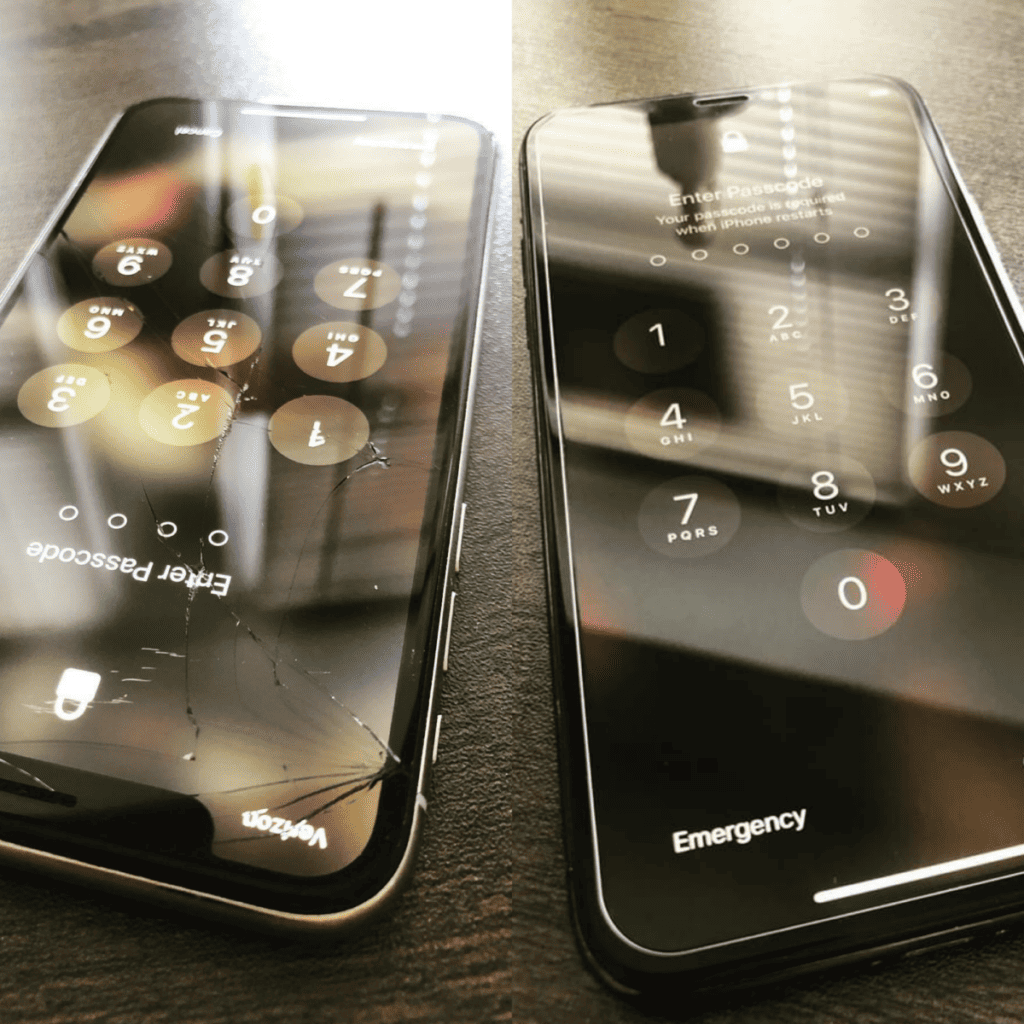Wondering why your local cell phone repair shop is asking for your passcode? You’re not the only one concerned and sparked with curiosity. Below we explore the reasons why phone repair shops ask for your passcode, and learn the balance between security and providing exceptional repair services.

Reasons Phone Repair Shops Need Your Passcode
Phone repair shops may ask for your passcode for several reasons, all of which revolve around ensuring the best repair service and maintaining your device’s data and security.
1. Diagnosing Your Device
Repair technicians often need access to your device’s settings and software to diagnose and troubleshoot issues accurately. By asking for your password, they can perform an in-depth diagnosis and identify any potential issues.
Components a technician may troubleshoot:
- Camera functionality
- Battery health
- Microphone functionality
- Face-ID functionality
2. Testing Repairs and Replacement Parts
After performing repairs or replacing components, technicians need to test the new parts and ensure the repair was successful. Technicians need access to your device to test its functionality and performance. Sharing your passcode with technicians allows them to ensure that the repair was indeed successful.
Features a technician may test post-repair:
- Testing screen functionality
- Testing camera functionality
- Test phone call
3. Data Migration and Backups
In cases where your device needs to be replaced, repair shops may assist you in transferring your data to the new device. Repair shop technicians may ask for your device password to transfer and back up your data successfully. By providing your passcode, technicians can securely transfer your personal information, including contacts, photos, and other important data.
4. Security Measures for Customer Protection
Passcode requirements serve as a security measure for both the repair shop and the customer. By verifying device ownership through the passcode, repair shops can protect against fraudulent claims. Additionally, ensuring that the repair shop has proper access to your passcode helps prevent unauthorized access or use of your personal information during the repair process.
Sharing Your Passcode & Privacy Concerns
While phone repair shops may have legitimate reasons for asking for your passcode, it is essential to address privacy concerns and establish trust between the customer and the repair shop.
1. Transparency and Customer Consent
Repair shops should provide a clear and concise explanation of why they need your passcode. They should obtain your explicit consent before accessing and using the passcode, ensuring that you understand the purpose and implications of sharing this information.
2. Confidentiality and Data Protection
Repair shops should prioritize the secure storage and handling of passcodes. Implementing proper data management practices, such as encryption and limited access, helps prevent breaches and unauthorized access to customer information. Regular staff training on privacy policies and legal obligations ensures that all employees handle customer data with utmost care.
3. Anonymization of Customer Data
To further protect privacy, repair shops should minimize the collection of unnecessary personal information. They can separate customer identification from device diagnostics and anonymize data to maintain customer anonymity while still performing essential repairs and analysis.
Sharing Passcodes & Passwords: Alternative Approaches
While passcodes are traditionally required for certain repair procedures, there are several alternatives to balance security and convenience.
1. Limited Access
Before sharing your password with your cell phone repair technician, lock sensitive files and apps. This approach allows technicians to perform necessary tasks while reducing the risk of potential misuse or unauthorized access to personal information.
2. Perform Diagnostics with Technician
Alternatively, you can opt not to share your passcode with your repair technician during repair. Instead, you can perform any diagnostics side by side with your technician. This will ensure your data is safe. Likewise, post-repair you can also test your device with the technician to ensure your device functions properly and your data hasn’t been compromised.
3. Wipe Your Device Before Repair
Another alternative approach is to completely wipe and reset your device prior to repair if possible. This ensures no data is present on your device during the repair process and will prevent any data theft during repair. The technician will be able to diagnose and test your device post-repair without a passcode.
Conclusion
Phone repair shops requesting your passcode have valid reasons to ensure a quality repair. This includes diagnosing issues, testing repairs, and protecting customer data. While privacy concerns are crucial, transparency, customer consent, and proper data protection measures can alleviate these concerns. With a balance between security and convenience, phone repair shops can provide effective repair services while maintaining customer trust and safeguarding personal information